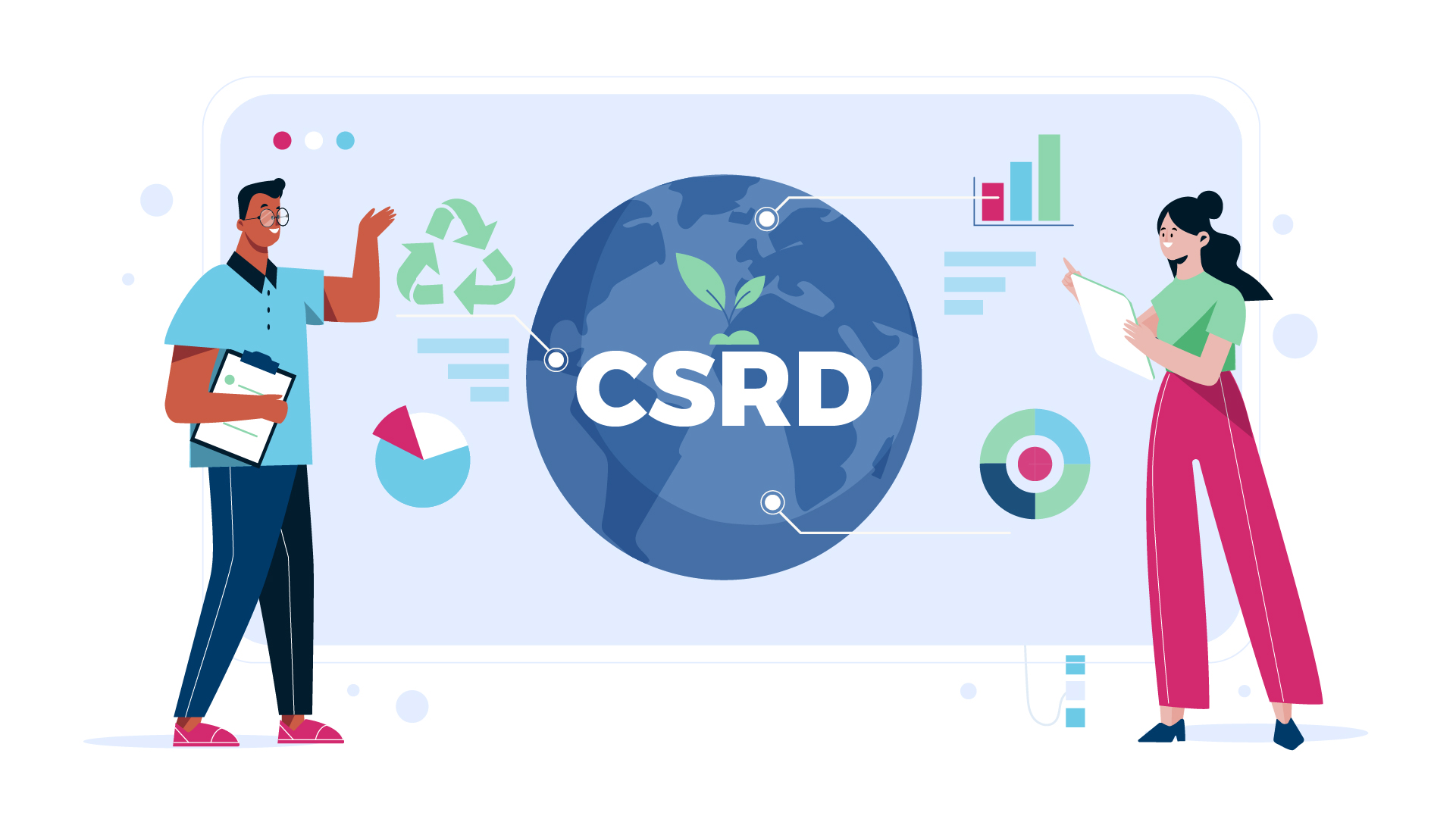ESG & Sustainability
Unlock the Potential of ESG
With the Corporate Sustainability Reporting Directive (CSRD), a company that meets the turnover and balance sheet criteria, even without having more than 250 employees, would be required to report on ESG matters. The CSRD significantly broadens the scope of companies required to report, aiming to include more medium-sized and large companies in the ESG reporting framework. This means that a company would need to meet at least two (2) out of the three (3) criteria to submit reports.
The Corporate Sustainability Reporting Directive (CSRD) will expand its scope starting in 2024, covering significantly more companies than its predecessor, the Non-Financial Reporting Directive (NFRD). This includes not only large public interest entities with more than 500 employees but also any large companies and all companies listed on EU-regulated markets (excluding micro-enterprises). A "large company" under the CSRD is defined as one that meets at least two of the following criteria:
Size Threshold
Companies must have more than 250 employees (This is aligned with the Corporate Sustainability Reporting Directive (CSRD)).
Turnover
Companies must have a turnover exceeding €40 million.
Balance Sheet
Companies must have a balance sheet total exceeding €20 million.

The Corporate Sustainability Reporting Directive (CSRD)
Phase 1 - January 1, 2024
Large public-interest companies (over 500 employees) already subject to the NFRD will need to comply with the CSRD requirements for the 2024 financial year, with reports due in 2025.
Phase 2 - January 1, 2025:
Large companies that are not currently subject to the NFRD but meet the new CSRD criteria (more than 250 employees, a turnover exceeding €40 million, or a balance sheet total exceeding €20 million) will need to comply for the 2025 financial year, with reports due in 2026.
Phase 3 - January 1, 2026
Listed small and medium-sized enterprises (SMEs), small and non-complex credit institutions, and captive insurance undertakings will need to comply for the 2026 financial year, with reports due in 2027.
These phased timelines aim to give companies sufficient time to prepare for the new reporting requirements and ensure a smooth transition from the NFRD to the CSRD.
In Malta, approximately 1,000 companies are expected to fall under the reporting requirements of the CSRD. This expansion aims to improve the quality and transparency of sustainability information disclosed by companies, supporting the transition to a more sustainable economy.

Services
ESG Auditing & Reporting
We specialize in comprehensive ESG (Environmental, Social, and Governance) auditing and reporting, helping businesses navigate the evolving landscape of sustainability. Our ESG and reporting services include an in-depth gap analysis, where we thoroughly identify all points of carbon generation across your operations. We measure Scope 1, Scope 2, and Scope 3 emissions, ensuring a comprehensive understanding of your company’s environmental impact. This analysis not only helps in quantifying direct and indirect emissions but also pinpoints areas for improvement, enabling targeted strategies for carbon reduction.
GHG Assessment & Carbon Footprint Reporting
Our GHG Assessment and Carbon Footprint Reporting service is designed to help businesses understand and manage their environmental impact. We thoroughly identify all sources of carbon emissions and other greenhouse gases (GHGs) within your operations, providing a broad analysis of your company’s CO2 output. Once this assessment is complete, we compile a detailed report that outlines your carbon footprint. With this data, we can help you develop a strategic plan to begin the decarbonization process, ensuring your company takes meaningful steps toward sustainability and regulatory compliance.
Decarbonization Strategic Services
Our Decarbonization Strategy service is designed to help businesses significantly reduce greenhouse gas (GHG) emissions across all areas of operation. After thoroughly identifying both direct and indirect emissions from every company process, we craft a comprehensive strategy that addresses emissions not only from technological and industrial sources but also from manpower and operational processes. This plan includes clear, achievable targets with strategically set timeline goals to guide your company through each phase of the decarbonization journey. By implementing this holistic approach, you can effectively lower emissions, optimize operations, and align with sustainability goals, all while contributing to a greener future and reaching carbon neutrality.
Comprehensive Social & Governance Reporting
Our Social and Governance Reporting service provides a comprehensive assessment of your company’s social and governance practices. We conduct detailed research, audits, and reports on key areas including employee turnover, satisfaction, and compensation benchmarking, ensuring your organization meets best-practice standards. Our analysis extends to evaluating corporate social responsibility (CSR) initiatives and developing policies aligned with the European Sustainability Reporting Standards (ESRS). With our insights, you’ll gain a clear understanding of your organization’s current social and governance position, along with actionable recommendations to foster a positive workplace culture and robust governance framework.


